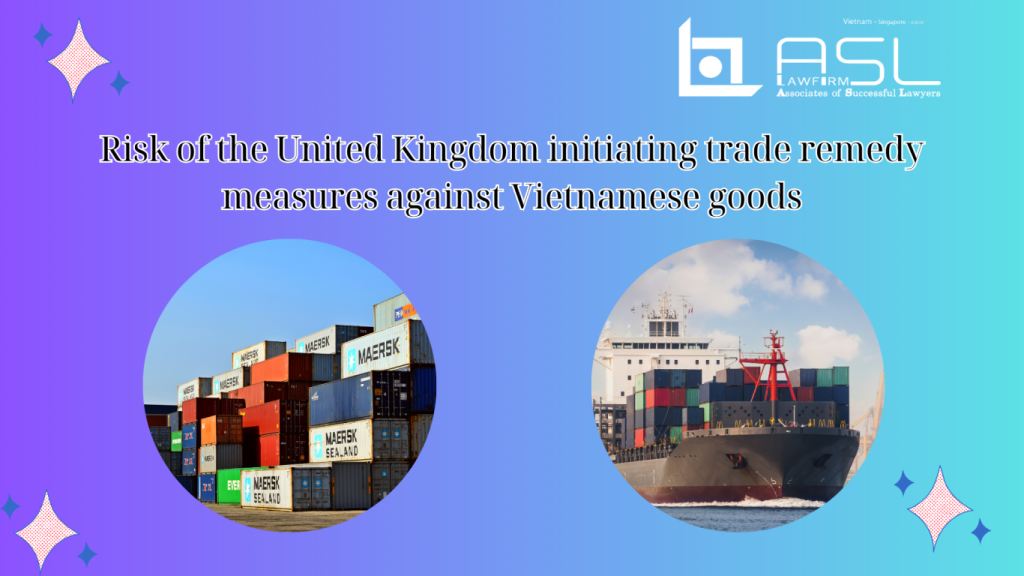With the United Kingdom officially joining the CPTPP and the accompanying significant tariff benefits for years to come, it’s essential for Vietnamese businesses to ramp up their exports to this market. However, alongside increased exports, there is also a potential risk of facing anti-dumping, countervailing, and trade remedy investigations from the UK.
Bilateral trade between Vietnam and the United Kingdom showed a declining trend in the early months of 2023 but has been picking up since then until the end of the year. Statistically, the two-way trade in the first seven months of 2023 between Vietnam and the UK remains comparable to the previous year, with Vietnam’s exports to the UK reaching nearly $3.5 billion and imports from the UK totaling $460.1 million.
In addition to the UKVFTA (Vietnam – United Kingdom Free Trade Agreement), an exclusive trade agreement signed after the UK’s formal exit from the EU, the UK has also reached a consensus to become a member of the CPTPP (Comprehensive and Progressive Agreement for Trans-Pacific Partnership), with official signing expected by the end of the year.
Given these two trade agreements and the long-standing cooperation between the two countries, the opportunity for Vietnamese goods to thrive in the UK market from now until the end of 2023 and 2024 is substantial. This is also the reason why the risk of Vietnamese businesses facing trade remedy investigations is correspondingly increasing.
According to WTO statistics, by the end of June 2022, the UK had initiated a total of 4 trade remedy investigations and applied one trade remedy measure, namely safeguard measures against Vietnamese steel products.
Post-Brexit, the UK will no longer apply the same safeguard measures for steel products originating from Vietnam as it does for the EU. Instead, the UK will proactively apply its separate safeguard measures. At present, the UK has completed the review and updating of the trade remedy measures following its exit from the EU.
The case of applying safeguard measures against Vietnamese steel products was initiated by the UK in March 2022. By June 2022, the UK’s trade remedy authority issued a final conclusion, determining that Vietnamese steel products would be subject to specific tariff quotas on a quarterly basis, along with an overall tariff quota for certain steel products from July 1, 2022, to June 30, 2024. Imports within the quota are exempt from tariffs, while those exceeding the quota face an additional tariff of 25%.
Since the UK’s accession to the CPTPP, it’s expected that Vietnam and the UK will progressively reduce bilateral trade tariffs by up to 99.2% over a 7-year period. With such reduced tariffs, it’s certain that Vietnamese exports to the UK will increase, consequently elevating the risk of trade remedy investigations.
Potential trade remedy measures that the UK may consider applying, as outlined in the UKVFTA, include anti-dumping, countervailing, and safeguards. Additionally, the UK could implement anti-circumvention trade remedy measures against products from other countries that evade duties by passing through Vietnam.
ASL LAW is the top-tier Vietnam law firm for Anti-dumping & countervailing. If you need any advice, please contact us for further information or collaboration.

 Tiếng Việt
Tiếng Việt 中文 (中国)
中文 (中国)

